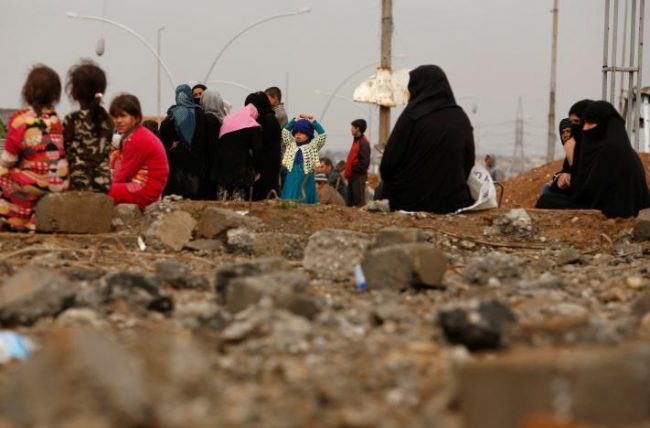Baghdad – Iraqi military sources uncovered on Thursday that the Joint Operations Command (JOC) was ordered by the Armed Forces leadership not to use heavy weapons in their operations to liberate the remaining areas of Mosul.
Brigadier-General Mohamed al-Jubouri from the JOC told Germany’s news agency DPA that the command informed both the Federal Police and the Rapid Response forces not to use heavy weapons and smart guns in bombarding ISIS havens in order to prevent more civilian casualties.
Al-Jubouri said the decision was taken after the number of civilian casualties elevated as ISIS militants continue to use civilians as human shields.
On Thursday, the Iraqi police command in Nineveh said that 5 women and two children were killed by ISIS Katyusha rockets that targeted a market east the city of Mosul, 400 kilometers north of Baghdad.
Colonel Khaled al-Jawari of Nineveh Police Command told DPA that ISIS members launched three Katyusha rockets at an outdoor market in al-Zohour neighborhood of eastern Mosul.
Meanwhile, Iraqi Prime Minister Haider al-Abadi received on Thursday a telephone call from US President Donald Trump, who confirmed the importance of cooperation between both sides, particularly at the military level, the office of the Iraqi prime minister reported.
For his part, al-Abadi said the defeat of ISIS is near, asserting the need of continuing to receive international support.
Separately, after landing in Baghdad Thursday, UN Secretary General Antonio Guterres called on the need to “focus on the dire humanitarian situation on the ground,” adding that the “protection of civilians must be the absolute priority.”
Guterres kicked off his visit to Baghdad by meeting Iraqi Foreign Minister Ibrahim al-Jaafari and Speaker Salim al-Jubouri. He would later meet with Prime Minister al-Abadi before heading to Irbil, the biggest city in the Kurdistan district.
During his meeting with Guterres, al-Jubouri said he hoped the UN would double its humanitarian efforts to confront the challenges that have lately started to appear due to the poor resources in the country.
